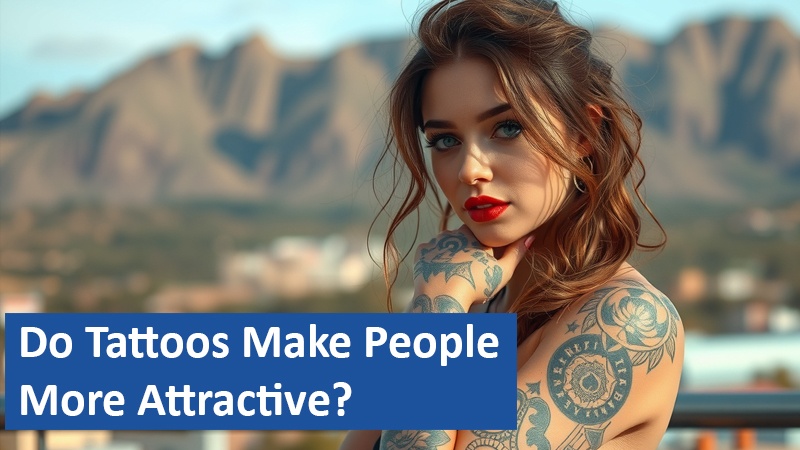A new study from Germany explores whether people with tattoos are perceived as more attractive. While tattoos have gained mainstream acceptance, the findings reveal a strong adherence to traditional beauty standards that favor untattooed bodies.
By Aubree Ross
Tattoos and Perceptions of Beauty

Researchers at the Helmut Schmidt University in Hamburg surveyed 487 participants to evaluate perceptions of attractiveness based on tattoos. Participants were shown images of male and female models with varying levels of tattoo coverage, from none to heavily tattooed. The tattoos featured neutral, geometric designs without religious, political, or written elements. The results, published in PLOS ONE, indicated that untattooed models were consistently rated as the most attractive. In contrast, heavily tattooed individuals, particularly those with facial tattoos, were perceived as the least attractive. This suggests a continued preference for traditional beauty ideals that emphasize the natural body.
Generational and Cultural Differences
The study found notable variations based on age and personal tattoo experience. Younger participants under 50 and individuals with their tattoos rated tattooed models slightly higher in attractiveness compared to older or untattooed participants. Despite this, even these groups viewed facial tattoos as the least appealing, highlighting a cultural aversion to highly visible tattoos in Germany. The researchers concluded that while tattoos have become more accepted, strong cultural biases against extreme tattoos remain prevalent. These findings reflect Germany’s unique cultural context and may not apply to other societies.
Global Perspectives on Tattoos
While the study focused on Germany, perceptions of tattoos vary widely across cultures. In Japan, tattoos have historical associations with organized crime, contributing to societal stigma. Conversely, in Polynesia, tattoos are deeply rooted in cultural and spiritual traditions, symbolizing identity and heritage. In Western cultures, tattoos are increasingly viewed as an expression of individuality and artistry. However, studies like this highlight that biases and traditional beauty norms still influence how tattoos are perceived.
Understanding the Role of Tattoos in Society
This research sheds light on the complex relationship between tattoos and societal perceptions of beauty. While acceptance of tattoos has grown, traditional ideals continue to shape opinions, especially regarding highly visible or extreme tattoos. The study underscores that while tattoos have become more mainstream, traditional beauty standards still influence perceptions, particularly for extreme tattoos like facial designs. Cultural differences highlight that tattoos can carry vastly different meanings and associations worldwide. This ongoing tension between individuality and societal norms continues to shape how tattoos are viewed in modern society.
Based on content from www.forschung-und-wissen.de and own research.